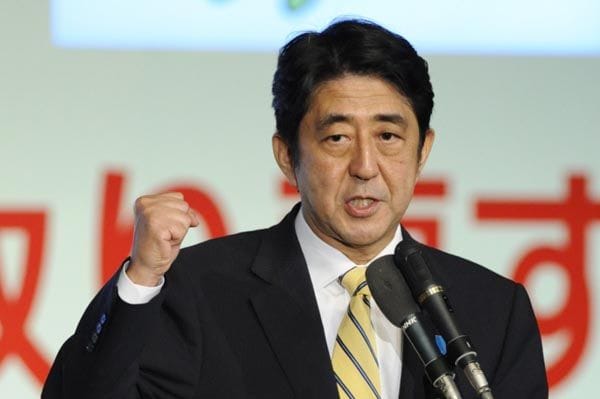Japan's Military Role Will Likely Increase in The Future


The conservative Japanese Liberal Democratic Party is on its way to win big in Japan's elections on Sunday which will bring back to power former prime minister, Shinzo Abe. Shinzo Abe will not only push LDP's economic plan, but his election will have major consequences on Japan's military role in Asia.
Right wing tendencies are currently very popular among the Japanese population and Shinzo has made a strong stance with China a major part of his election platform.
Japan's pacifist Constitution, written under American supervision in the aftermath of WWII, is considered to be outdated in its current interpretation, especially in regards to the growing influence of China in the region.
Article 9 of the Japanese Constitution provides:
"Aspiring sincerely to an international peace based on justice and order, the Japanese people forever renounce war as a sovereign right of the nation and the threat or use of force as means of settling international disputes.(2) To accomplish the aim of the preceding paragraph, land, sea, and air forces, as well as other war potential, will never be maintained. The right of belligerency of the state will not be recognized."
Implementation of Article 9 has resulted in Japan having a secondary role in military balance in the region, which has meant mainly supporting the United States.
Despite its constitutional limitations, Japan's defense budget is the sixth largest in the world. Its Self-Defense Force employs 240,000 people who technically remain civilians. Japan also has a very strong navy with state of the art submarines.
Japan's military role has increased in recent years, starting with it first military deployment since WWII in Iraq and Afghanistan in support of the US. It has offered its first military aid since WWII by "approving a $2 million package for its military engineers to train troops in Cambodia and East Timor in disaster relief and skills like road building." Japan has also participated in more joint exercises with Pacific and Asian countries.
If it will be difficult to amend the constitution, Shinto Abe will be able to change the interpretation of the article in order to lift Japan's ban on aiding an ally under attack or exercising its right to self-defense. This will allow Japan to destroy missiles launched by North Korea, help US vessels in danger, or even participate in joint operations with the US.
The militarism revival is triggering different reactions. The United States has, for a long time, encouraged Japan to assume a bigger role in the region as part of its strategy to strengthen efforts against China.
Countries that have historically been fearful of any Japanese militarism resurgence, such has the Philippines or Vietnam, now welcome a strong Japan because of their own territorial tensions with China.
“We have already put aside our nightmares of World War II because of the threat posed by China,” said Rommel Banlaoi, a security expert at the Philippine Institute for Peace, Violence and Terrorism Research in Manila.
China's unhappiness with a stronger military in Japan was recently illustrated at a defense conference in Australia where a Chinese lieutenant warned Australia of allying more with a fascist nation that once bombed the north of the country.
Shinzo Abe's strong nationalism, however, might spark confrontations with China the United States would rather avoid as long as possible. In late October, he visited Yasukuni Shrine, where fourteen of Japan’s worst war criminals are buried along with thousands of other war dead, enraging the Chinese. The consequence of his return to power in the region are yet to be seen.



